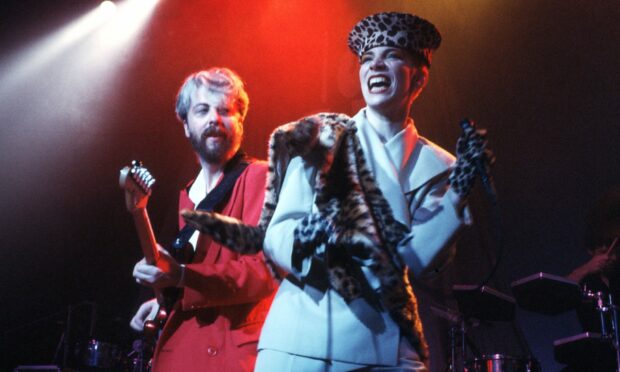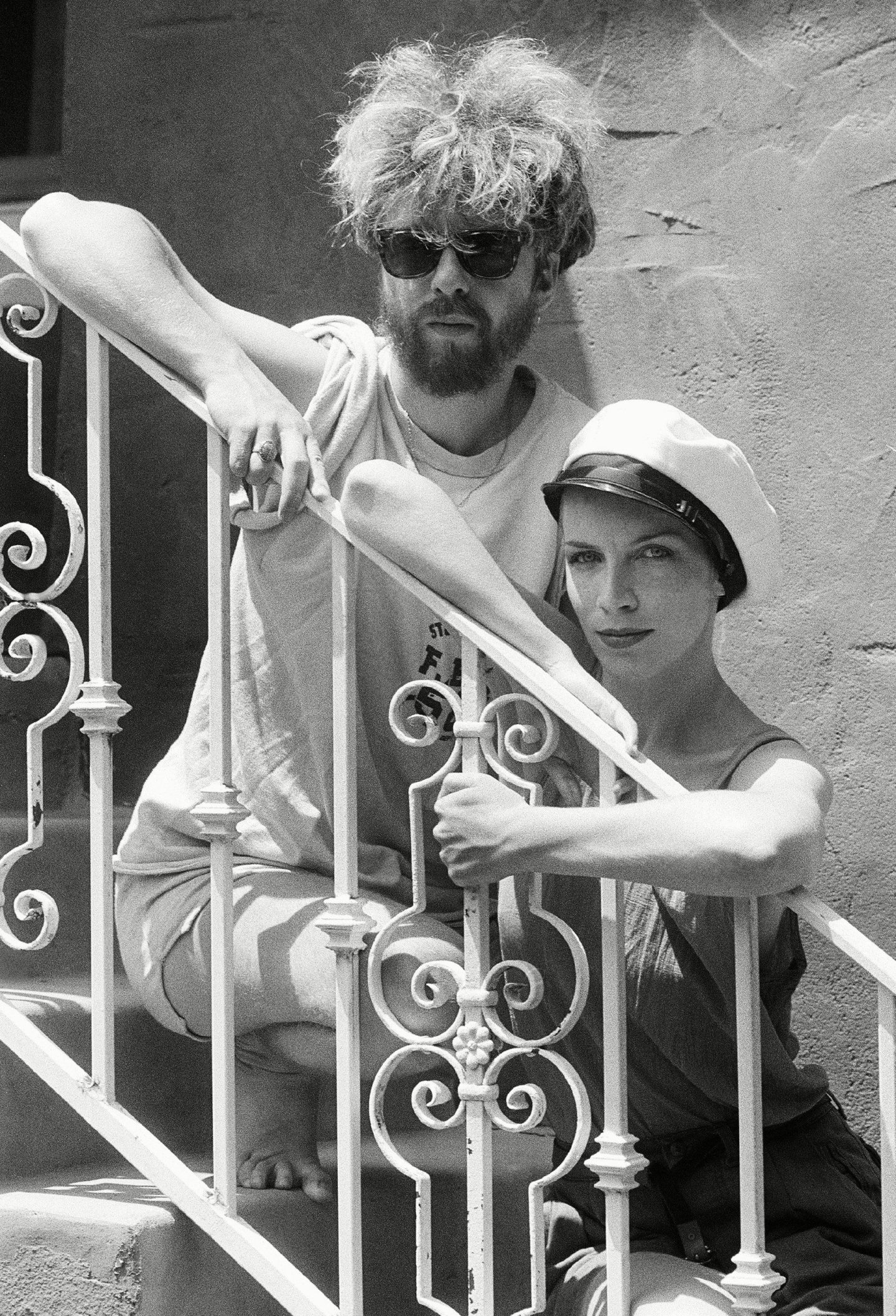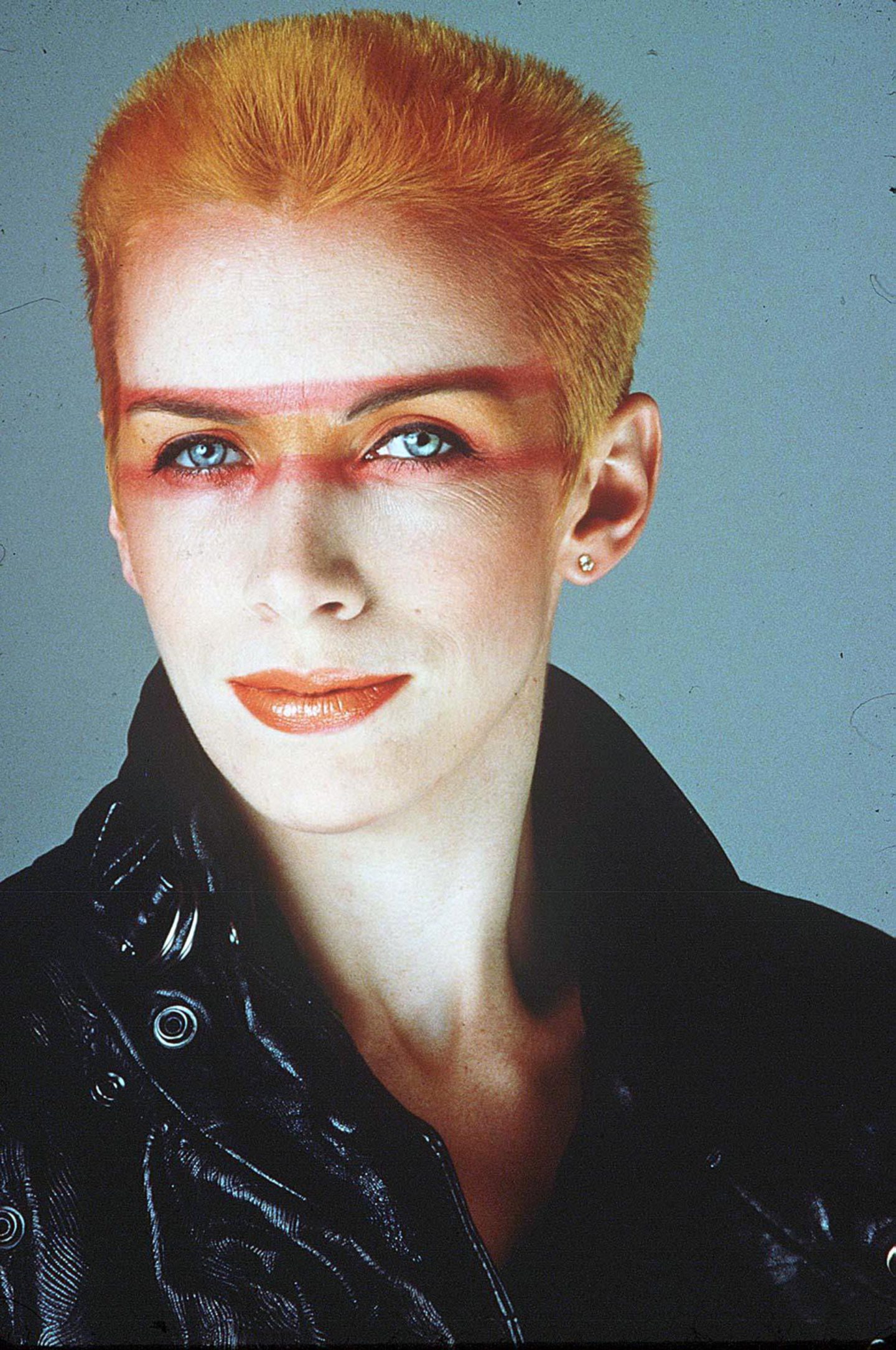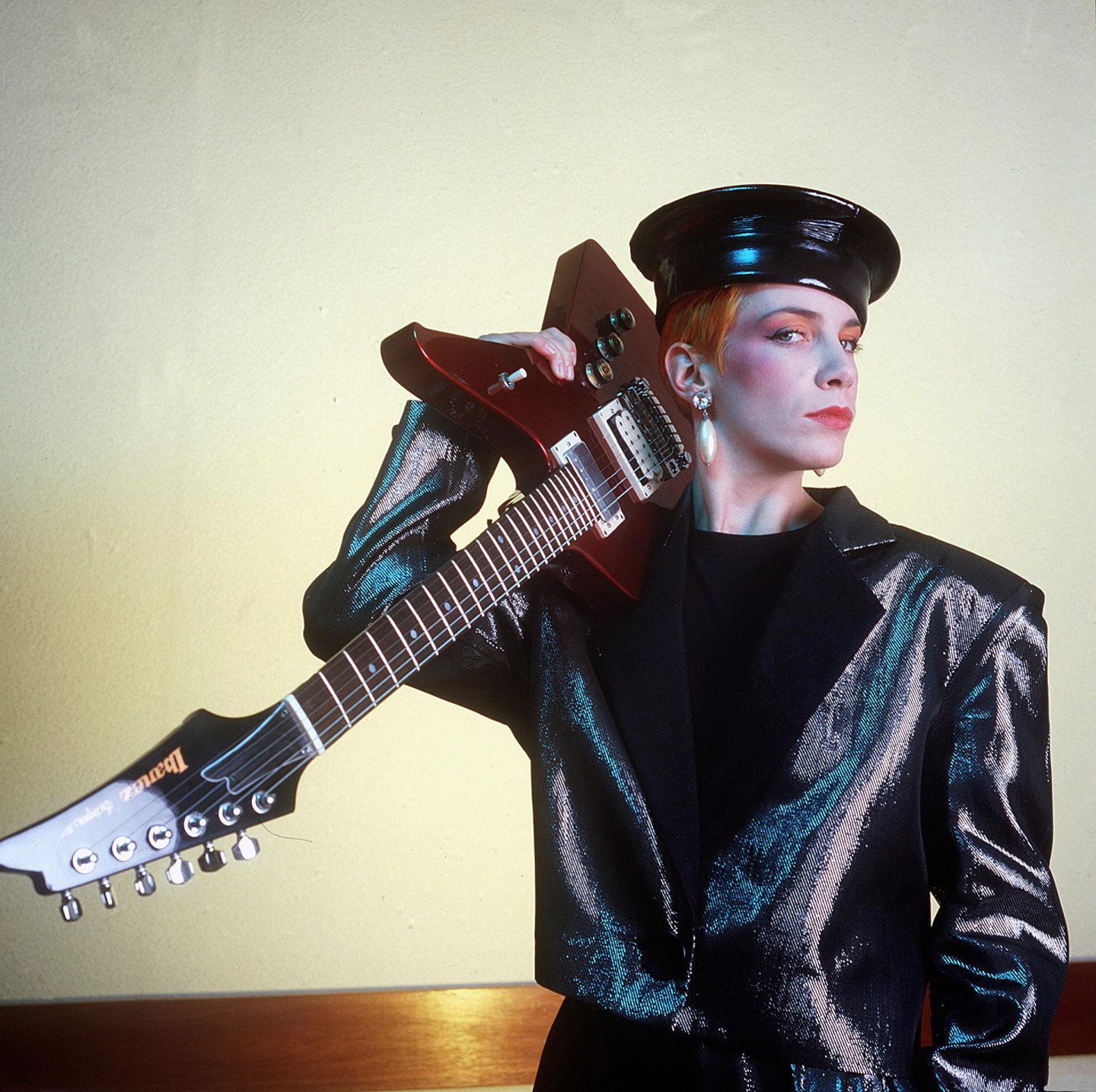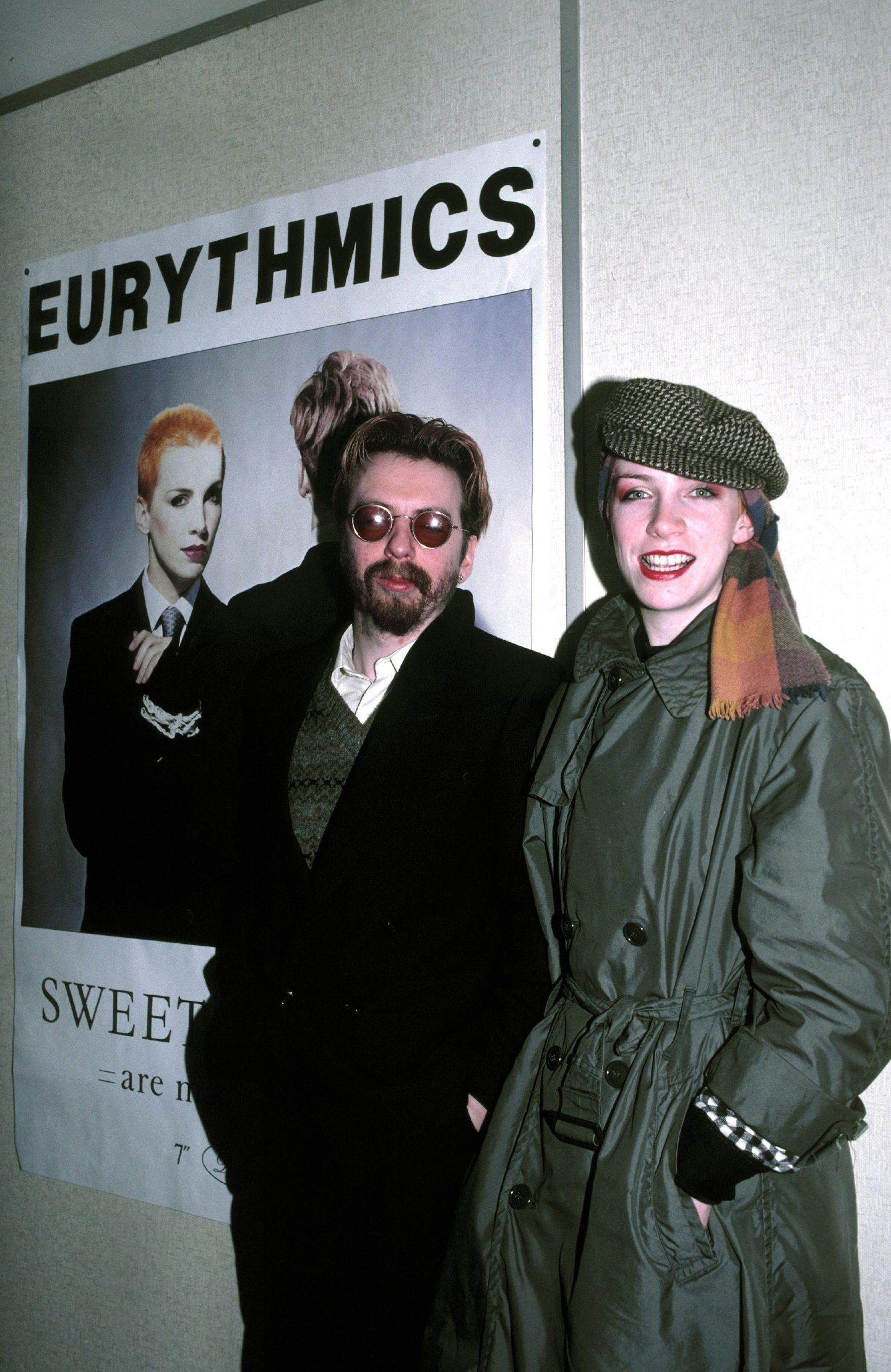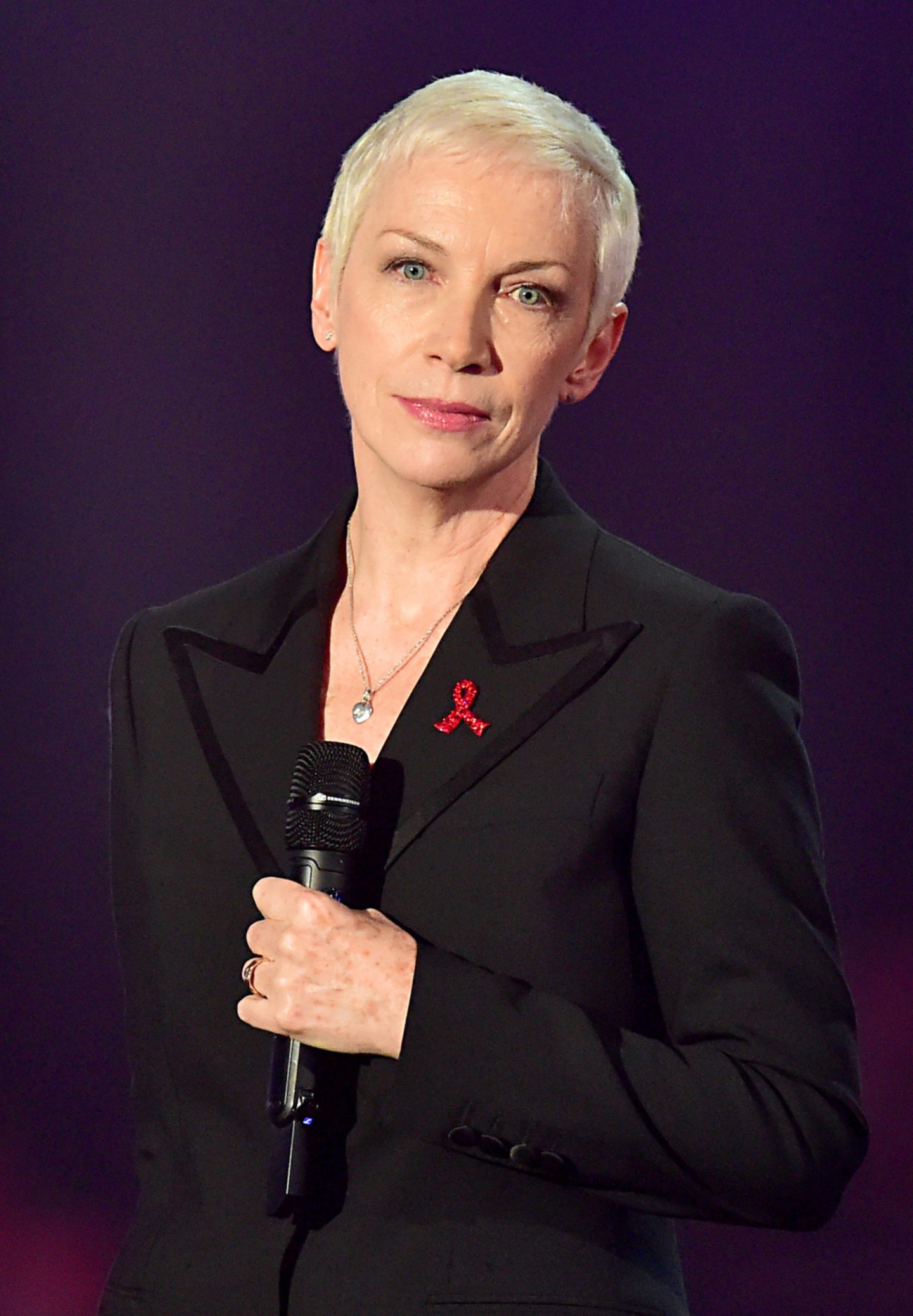They became one of the world’s best-selling groups in the 1980s.
And Eurythmics songs such as There Must Be an Angel, It’s Alright, Would I Lie to You, Here Comes the Rain Again and Who’s That Girl were all built around the soaring, ethereal vocals of the north-east’s Annie Lennox.
Yet there were no sweet dreams when the Aberdonian joined forces with Dave Stewart and they released their first album 40 years ago this week.
On the contrary, the underwhelming reception to In The Garden almost sparked the collapse of the band – and was the catalyst for them being briefly ditched by their record label – before they had even hit their stride.
Annie, in particular, was so devastated by the disc’s failure that she returned to the Granite City from London and endured a fraught period where she suffered severe depression and bouts of agoraphobia.
The duo were determined to create something more substantial than the songs they had performed with The Tourists, but their early efforts alienated their existing fans without attracting new aficionados.
By the stage that In The Garden was unveiled on October 16 1981, they had already issued a couple of singles, neither of which troubled the charts.
Never Gonna Cry Again led to them appearing on the late-night BBC programme The Old Grey Whistle Test, but despite being accompanied by a stunning experimental video, it peaked at No 63 in July.
In August, they tried again, with Belinda, a decent album track that was nowhere near distinctive enough to spark people’s imaginations.
And Dave knew it when he later said: “The best test of what makes a good single is always what it sounds like when it comes on the air.
“When I heard Belinda, I just knew it wasn’t a good choice as a single.
“There was nothing wrong with the music or the song, but it was the way it was mixed and produced and presented.
“Nothing happened when it came on and we kept getting reports back that DJs found it weird.
“We hadn’t got the commercial thermometer well gauged.”
The lukewarm feedback to these songs understandably perturbed Eurythmics and those bankrolling them at RCA.
And the same ambivalence surrounded the album when it was finally put on sale and sank without trace.
The public generally hummed and hawed and looked elsewhere for their sugar rush or rock and pop.
We had some horrible experiences on the road.”
Dave Stewart
The critics were more appreciative and NME described In The Garden as: “A welcome step forward from the shrill and arthritic into mature music of subtle shades and true fluency. There’s enough of quality here to suggest that these two Tourists have finally come home.”
However, it didn’t make any impact on the British charts, it wasn’t even released in the United States and Record Mirror’s review struck a nerve: “I’m still not sure whether it’s a good album or a load of twaddle.”
Dave was frustrated by its lack of success. But Annie was distraught.
Matters deteriorated when they embarked on the In The Garden Tour in the winter of 1981: a year when months of snow and ice engulfed the UK.
There was no grand entourage to help them at the gigs in nightclubs and university venues in Coventry, Birmingham, Edinburgh, Glasgow, Stoke-on-Trent, Leicester and London.
They were totally on their own and found themselves driving around the country in an old Volvo, towing their equipment behind them in a second-hand horse box.
They faced a winter of discontent
Dave recalled: “We had some horrible experiences on the road.
“The horse box was heavier than the car and the whole thing jack-knifed, which was horrific.”
Annie, for her part, was aware that accidents lurked round every corner.
She said: “In our own car, we hit this blizzard and had to drive at about three miles an hour.
“What was so frightening about it was that we were going up the motorway and this blinding snow storm engulfed us.
“It was just like a sheet of snow and ice.”
Then, even as they were struggling to stay on the road, the news came through from RCA that Eurythmics were being axed after disappointing sales.
I spent a great deal of time crying. It was unbearable. I felt so claustrophobic and experienced such terror that I hit rock bottom.”
Annie Lennox
There was little for either of them to celebrate as Christmas beckoned.
Dave was forced to spend time in hospital with a collapsed lung and Annie, seeking a refuge from the endless congestion and commotion in London, travelled back to her roots in Aberdeen and began to contemplate whether she could continue with her music career.
At least, they had an ally within RCA’s A&R department, Jack Steven, who risked his own job to campaign on behalf of Eurythmics: a work in progress he fervently believed still had the potential to conquer the globe if it was properly promoted and supported for a sustained period.
But such lofty ambitions seemed far away as New Year arrived and the pair were separated for the first time since they had made sweet music together.
Annie Lennox is a famously private person, but she opened up about the myriad problems she confronted after breaking up with Dave.
Despite being surrounded by people who wanted to help her, there were no easy solutions as she grappled with a range of issues.
She told The Face: “I spent a great deal of time crying. It was unbearable. I felt so claustrophobic and experienced such terror that I hit rock bottom.
“It was like having a scar – you never believe that you’ll recover or function again properly.
“My self-esteem dropped to an all-time low and I was suffering from agoraphobia.
‘It was horrible to deal with’
“I couldn’t go outside the door. Whenever I did, I started having panic attacks, I would get palpitations and come out in cold sweats. It was horrible.
“After Dave and I parted, I tried to form new friendships, but all I did was frighten people.
“In the end, you realise that you are devastatingly alone in the world. And no matter how much you want to get out of that sort of thing, it’s very hard to crack.
“It has to come entirely from within yourself and you have to start thinking about your own self-preservation.”
But there’s a saying that it’s always darkest before the dawn. And while turning to a psychotherapist did not provide any solace – “I was more freaked out when I came out of her office than when I went in” – help was on the way.
From the person who had been her rock and would be so again.
Annie, who had turned 27 on Christmas Day, has never been anything less than persistent in her attempts to be original and creative.
And she was boosted when, early in the New Year, she renewed acquaintances with Dave, who had been released from hospital and poured himself into new songs and ideas which would spark a Eurythmics resurgence.
She recalled: “Dave was down in London, but he called me up and played something down the phone and said: ‘This is the new thing’.
“He was really excited about the songs and I knew that we had found our new direction.”
Now, all it needed was finding somebody who would finance the project.
Artistic serendipity happened in the most improbable place: the Crouch End branch of Barclays Bank, where Dave met the manager, Geoff Williams.
Dressed in a sharp suit and carrying a briefcase, he made his pitch with a take-no-prisoners conviction. “I told him that Annie and I were going to do something absolutely amazing and the bank should invest in us.
“I made the point that we could buy the equipment we needed for £7,000 and then make all the albums that we wanted.”
Within the next few moments, Mr Williams had agreed to the proposal and jotted down a note that his customer was “a determined young man with a good head for business”.
And everything changed from that point.
On another day, with a more cautious or parsimonious person behind that desk, the Eurythmics project might have crashed and burned.
But the memories of In The Garden were brushed aside and, soon enough, the pair were producing such classics as Sweet Dreams (Are Made of This), which sounds like an uplifting message, but was born from abject despair.
As Annie said: “It’s basically me saying ‘Look at the state of us. How can it get any worse?’
“The song was an expression of how I felt: hopeless and nihilistic.
There was no looking back
“It’s about surviving the world. It’s not a normal song so much as a weird mantra that goes round and round, but somehow it became our theme song.
“And, apparently, it’s the most misheard lyric in British pop.”
She and Dave never looked back in the following decade and sold millions of Eurythmics records, while Annie subsequently forged a stellar solo career and has performed in many of the globe’s grandest arenas.
It’s a world removed from those dank, depressing days in Aberdeen when she truly wondered if she was out of step with her generation.
